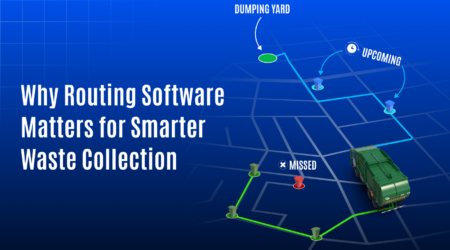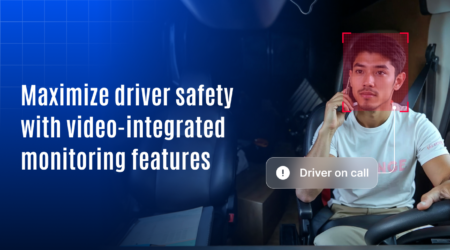Why GPS truck tracking is critical for heavy vehicle fleets
Fleet operators are under constant pressure to improve delivery timelines, control fuel costs, and meet compliance standards. Long-haul trips, route delays, and unverified fuel use continue to affect bottom lines. In many cases, the lack of real-time visibility leads to reactive decisions and reduced efficiency. According to McKinsey, fleets using GPS tracking improve route performance by up to 25 percent. Frost & Sullivan reports a 15 to 20 percent reduction in fuel losses for fleets using connected tracking platforms.
For system integrators working in this space, these figures represent more than statistics, they reflect growing demand for integrated, real-time control in trucking operations.
Key GPS truck tracking features that matter
In commercial trucking, specific tracking features are no longer optional. Long-distance operations, asset safety, and driver accountability require a focused feature set.
- Real-time location tracking
Ensures continuous visibility into truck movement, even during overnight or cross-border trips. - Route history and playback
Allows analysis of actual routes taken, delays, and unscheduled stops. - Driver behavior monitoring
Tracks events like harsh braking, overspeeding, and idle time to support safety programs and reduce fuel waste. - Geofencing and smart alerts
Enables entry and exit notifications for depots, delivery zones, or restricted areas. - Fuel monitoring
Helps detect sudden drops or irregular consumption, especially important on long, remote routes. - Maintenance alerts
Sends reminders based on kilometers driven or engine usage to prevent breakdowns. - Multi-SIM and network failover support
Maintains data consistency across borders and remote zones with poor connectivity. - Video telematics
Adds visual context by integrating dashcams with GPS tracking. Useful for verifying incidents, improving driver behavior, and protecting against false claims.
These features form the foundation of any serious GPS tracking solution for trucks. System integrators offering platforms that combine these functions are more likely to gain trust from high-value clients.
Operational use cases of GPS truck tracking
Modern truck fleets rely on GPS tracking for far more than location visibility. Key use cases include:
- Monitoring long-haul trips
Track every leg of multiple state or international trips with full trip history. - Fuel theft detection
Combine fuel sensor data with stop locations to identify theft risks. - Driver shift compliance
Record driving hours and rest periods for adherence to legal requirements. - Cross-border visibility
Maintain data logging and automated reporting for fleets operating across countries. - Cold chain monitoring
Track temperature data in real time for refrigerated trucks. - Vehicle immobilization
Enable remote vehicle to be turned off in the event of cargo theft or unauthorized use.
These use cases highlight the direct business value of GPS tracking for fleets and create strong reasons for system integrators to position solutions around operational control, cost savings, and security.
How system integrators benefit from GPS truck tracking solutions
GPS tracking software is a growth platform for system integrators entering the logistics and government mobility sectors. The increasing demand for smart fleet visibility is creating new business models and project opportunities across public and private domains.
Here’s where integrators stand to benefit:
- Tender-based implementation projects
GPS tracking is now often a part of government bids for smart transport, waste collection, and state logistics. Thus, platforms that offer compliance support, multilingual UIs, and open APIs position integrators to win larger, long-term projects. - Custom deployment and consulting revenue
Projects requiring unique workflows, integration with fuel sensors, or country-specific compliance tools (like WASL or OPAL) allow integrators to offer chargeable customization and consulting services. - OEM and white-label partnerships
Rebranding the software opens doors to sell under the integrator’s own brand, expanding their product portfolio without rebuilding infrastructure. - Vertical expansion opportunities
From public transport to refrigerated goods or toll monitoring, the same platform can serve multiple domains. Additionally, this allows integrators to cross-sell without changing their core offering.
Conclusion
GPS tracking has become a core enabler of efficient, compliant, and secure trucking operations. As industry standards evolve, fleet operators will increasingly rely on integrated tracking systems to manage risks and deliver consistent performance.
System integrators offering industry-specific solutions—not just hardware or software—will be best positioned to lead this transition. Hence, with the right capabilities in place, GPS truck tracking moves from a technical add-on to a business tool.


